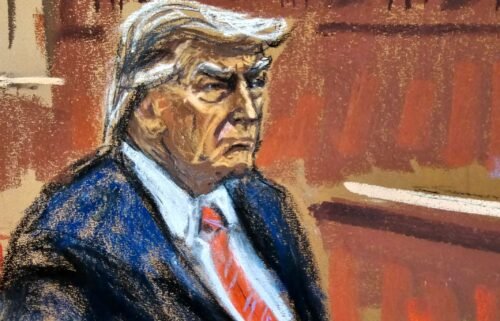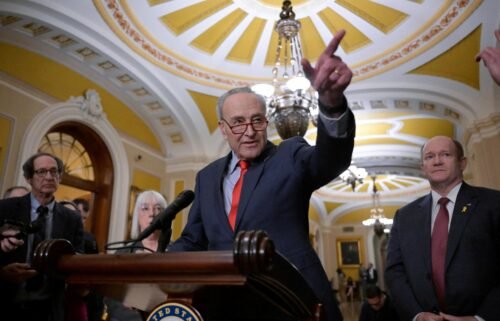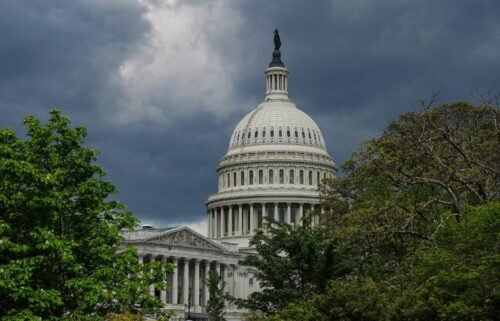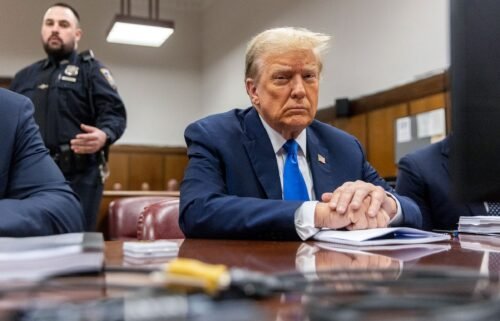Halle survivor: Gun control saved my life
I decided to visit Halle, Germany, shortly after moving to Berlin. I am one of a growing number of Jewish expats in Berlin, excited by the cultural outlets of the city, the cheaper rents and the diverse and open-minded Jewish life. Two weeks ago, an opportunity arose to visit a small, Russian-speaking Jewish community from the former USSR living in Halle to spend Yom Kippur with them. Our delegation was supposed to bring life and song to one of the most important days on the Jewish calendar.
We had just begun the Torah portion Wednesday when we heard the first explosion. My eyes moved from holy words to unholy smoke billowing in the courtyard. My instincts, conditioned by Parkland, Pittsburgh and Poway, forced me under the pew, before my brain understood what had sent me there.
My eyes fastened on another American, also in lockdown posture. I knew she was thinking what I was: another synagogue massacre. We were living what has become a distinctly American nightmare, only we were thousands of miles away.
We waited as words in Russian flew over our heads, the cantor watching the images on the feed from the security camera outside trained on the courtyard door. Then, one word in English: “Go.”
We ran.
But where were we supposed to go?
We ran to the back of the synagogue, through the hall, up the stairs, to a small apartment. Past a room with too many windows, out into the hallway instead, closing the door. I sat down, hoping our hiding place would provide safety, while knowing how vulnerable it was. Dust gathered on my white clothes, and the Torah scroll was left, open and alone in the synagogue.
The cantor then translated what he had seen: A gray van and a man suiting up in full protective gear. Homemade explosives thrown over the wall. The man holding a gun. A Good Samaritan shot. His inability to get through the door. The guns jamming. The explosives failing.
This was the same scene that the world would watch, streamed live for more than a half-hour as it unfolded, from a camera atop the terrorist’s head as he approached his victims.
It is a wholly modern reality that my trauma can continue outside of the confines of those moments on Yom Kippur; not from my stories as a witness, but through my attacker’s video feed (the live-streaming platform, Twitch, took the attacker’s post down).
While the courtyard walls and door held strong under his attack, it is Germany’s restrictive gun measures that saved us.
Our attacker had a limited arsenal of self-built explosives and submachine guns. While he may have used these self-styled weapons in an attempt to prove their efficacy, it is also quite possible it was because he had no legal access to anything better.
In Germany, gun ownership requires training, an application and psychiatric evaluation. Every three years gun owners are subject to a re-evaluation of their capacity to own a firearm, and assault weapons of any kind are not available for purchase.
I didn’t know any of this while I waited in that hallway. No one told me Halle would not be remembered on a list of synagogues massacres only because the terrorist lacked access to weapons capable of mass murder. If there were ever a clear encapsulation of why gun control is the only effective measure against mass shootings, it would be Halle. Please remember it.
By the time the police arrived, the gunman had already moved on from the synagogue.
The police placed us on lockdown in the synagogue, creating a two-block radius of safety around us. Stuck in the synagogue, we picked up our prayer books again, unsure of what else to do but continue our intensive day of prayer. The singing that emerged in those hours of lockdown is some that I will never forget, or want to relive.
We were then given orders to evacuate to a nearby hospital, where we would later finish the Yom Kippur service. Stepping out into the sunlight in groups of eight, we confronted hundreds of cops lining the streets in full gear. Trauma specialists and EMTs were on hand, and journalists jockeyed to capture our photos. The cacophony felt strange against Yom Kippur, our continued fasting, our lockdown songs.
The evacuation had been spurred by a second murder, inside a nearby döner (kebab) shop. At that time the police believed it had been a coordinated attack; we later learned it was the same gunman who had attacked us, with antisemitism at the synagogue and Islamophobia at the döner shop.
Even in the chaos of evacuation, I understood that the attack was more than antisemitism, that in white supremacist language, Jew is code for all minorities and conspiracy theories. Using language like “antisemitism” to condemn the gunman’s motivations is too narrow. Merely to tighten security around synagogues in response is too isolationary, and misses the lesson of Halle.
If we are to build walls around synagogues, we should also build bonds with our neighbors.
Therefore, I stand with communities of color, migrant communities, feminist alliances, Muslims and fellow Jews. I fight for better gun control. And I name and condemn the larger forces of white supremacism – of which antisemitism is certainly one – that animated the acts in Halle.




